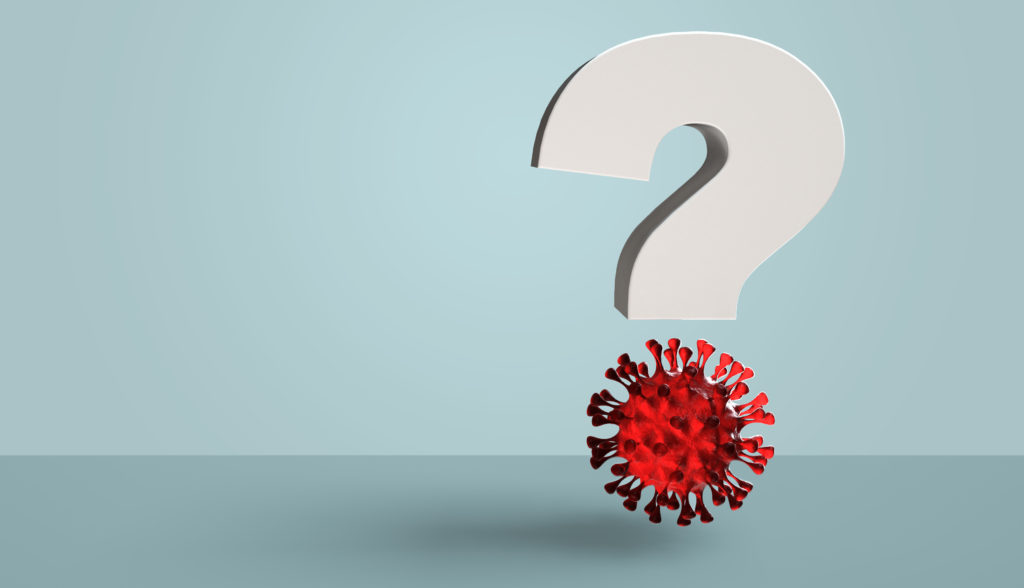By LUVO MNYOBE
Rhodes University and the Makhanda Circle of Unity hosted a youth chat about the COVID-19 vaccine and vaccine myths last week. The event was live-streamed on several Facebook pages and broadcasted on Rhodes Music Radio and Radio Grahamstown.
This chat featured a diverse group of young people, including outgoing SRC Community Engagement representative Lukhanyiso Cezula and pupils from various high schools in Makhanda. Sakhe Ntlabezo, Programme Manager of the Makhanda Circle of Unity, said it was important for young people to talk about the vaccine through what has certainly been a challenging time for all of us.

Last year, quite early in the pandemic, Rhodes University was one of the first universities to produce much-needed sanitisers, which were provided to the local community, clinics and hospitals at no cost. However, more than a year into the pandemic, a need has arisen to fight more than just the disease itself but also misinformation that happens on the internet. It is with this in mind that youth dialogues are so important.
“The point of the conversation we have today is for us to encourage one another, to share stories and have a light-hearted conversation. It is really critical to get young people vaccinated and help us delay the coming fourth wave,” said Ntlabezo.
South Africa recently opened its COVID-19 vaccination programme to include young people aged 18-34. This population covers the majority of the Rhodes University student body. Although Rhodes University has successfully vaccinated hundreds of students with its on-campus vaccination site, there still exists a lot of disinformation that is causing vaccine hesitancy amongst young people.
Forming part of the youthful and lively panel were students from three high schools in Makhanda: Sahluma Hoboshe from Nombulelo Senior Secondary School, Kristen Wehr from Victoria Girls High School and Phumelela Tsili from Ntsika Secondary School. Added to the panel was Beverly Chanaiwa, Master of Science in Biotechnology student at Rhodes University. Chanaiwa served as an expert on vaccines and technology and guided the discussion with knowledge and expertise.
Kristin Wehr reflected on the importance of young people getting vaccinated so that many of our current restrictions can be lifted. “We may never return to the way life was before COVID-19, but the vaccine is our best shot a return to a more ‘normal’ life,” she said.
Lukhanyiso Cezula, from the SRC, said it was important for everyone, especially young people, to get vaccinated as a means of collectively protecting one another from the worst of the virus. “Some of the countries that have had the best responses to the virus have put in place strategies that teach its people how to best live with the virus. By registering and vaccinating, we will be able to move one step further in our collective recovery from the pandemic,” said Cezula.
The panel cautioned against the conspiracy theories and speculation of the COVID-19 vaccine, urging young people to use science-based knowledge to inform themselves about vaccines. One of the pupils asked why the vaccine had been produced so speedily, less than two years from the first reported case of the virus.
“Covid viruses have been around since the early 2000s – SARS-CoV-1 – but have largely affected animals. When the SARS-CoV-2 appeared and made its way to humans, scientists already had decades of knowledge about covid viruses. The similarities between the two viruses have allowed for the speeding up of the creation of these vaccines,” Chanaiwa explained. Phumelela Tsili said it’s not just the harmful misinformation about vaccines that are causing hesitancy, but the lack of information, in general, that has led many to be reluctant towards getting vaccinated. Chanaiwa reminded the panel that the science of vaccines does not aim to give 100% immunity but that it will give our bodies a fighting chance so that when we do get infected, it is not as deadly as those who are not vaccinated.
Ntlabezo then engaged the pupils in a fact-busting exercise, where they were encouraged to share the strangest things they had heard about the vaccines. Chanaiwa then used her scientific knowledge to bust the myths in more detail.
Ntlabezo said: “Some people on Facebook said when you get the vaccine, you get sick and may die.” Chanaiwa said: “False. There are side effects to getting the vaccine, including fever, headache and nausea, but no one has died from the vaccine. If you experience adverse side effects, you should see your doctor.” Tsili said: “I’ve heard people say that the vaccine may alter a particular part of how your body functions, including numbness.” Chanaiwa said: “This is untrue. While there might be a numbness at the site of injection, your body recovers from this and will return to its normal function.”
Ntlabezo and the panel agreed that there is a need to create more dialogue platforms amongst young people and centre the experiences of young people when communicating about the COVID-19 vaccination. Ntlabezo assured the panel and those watching that the university would be hosting more discussions of this nature in future.
Communications and Advancement Director at Rhodes University, Luzuko Jacobs, said the University decided to host the webinar for young people by young people to encourage each other to vaccinate. “Rhodes University has come in handy in this regard, opening a vaccination site to the entire community of Makhanda, not just its students,” he said.
Link to panel live stream:
https://www.facebook.com/rhodesuniversity/videos/4633508873327086
Luvo Mnyobe is completing a MA in Economic Journalism.
This article was published courtesy of Rhodes University Communications.


